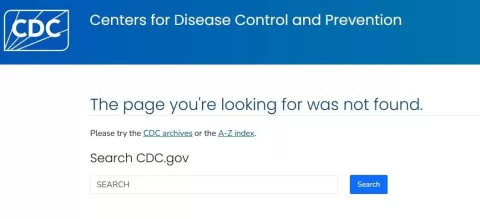A concerning Listeria monocytogenes outbreak has recently emerged, leading to the hospitalization of ten individuals across California and Nevada, primarily linked to ready-to-eat foods from Fresh & Ready Foods. This significant food safety incident has prompted an official FDA investigation as health officials scramble to determine the extent of the contamination. While the Centers for Disease Control and Prevention (CDC) has confirmed that many of those affected may not have sought medical attention, no fatalities have occurred—a small relief amid rising concerns. The outbreak strain’s discovery in environmental samples from Fresh & Ready Foods underscores the urgent need for proper food safety protocols in the production of ready-to-eat foods. In response, the company has initiated a Listeria recall of affected products, including sandwiches and snack items, that were distributed to various facilities across multiple states.
The situation surrounding the recent Listeria monocytogenes outbreak emphasizes the critical importance of monitoring food safety standards, particularly in ready-meal offerings. With several patients hospitalized, authorities are closely examining the implications for consumer safety related to convenience foods. The investigation launched by the FDA highlights ongoing concerns about foodborne illnesses and the specific risks associated with ready-to-eat meals that are not subject to thorough cooking processes. As public health officials delve into these cases, the broader implications of this outbreak highlight the need for stringent oversight within the food industry. Fresh & Ready Foods, under scrutiny from the CDC and FDA, reflects the heightened vigilance needed to ensure that food products on the market meet safe consumption standards.
Understanding Listeria monocytogenes Outbreaks
Listeria monocytogenes outbreaks, while rare, can have serious health implications, particularly for vulnerable populations such as pregnant women, the elderly, and immunocompromised individuals. This bacterium is primarily associated with ready-to-eat foods, such as deli meats, unpasteurized dairy products, and refrigerated items. In recent developments, an outbreak linked to ready-to-eat foods from Fresh & Ready Foods has led to hospitalizations across multiple states, underscoring the critical need for enhanced food safety measures.
The Centers for Disease Control and Prevention (CDC) plays a vital role in tracking and understanding the epidemiology of Listeria monocytogenes outbreaks. Following the recent outbreak, which has garnered significant attention from the FDA due to its connection to specific ready-to-eat foods, health officials have emphasized the importance of monitoring food items in establishments. The identification of Listeria in environmental samples has been a pivotal moment in the investigation, offering insights into the potential sources of contamination.
Impact on Fresh & Ready Foods and Food Safety Protocols
The recent FDA investigation into Fresh & Ready Foods has highlighted critical lapses in food safety protocols, particularly in the handling and distribution of ready-to-eat foods. Following the detection of Listeria monocytogenes in environmental samples at the company’s facilities, the FDA initiated a thorough review of their production and distribution practices. The voluntary recall of numerous products indicates the company’s acknowledgment of the potential risks these foods posed to the consumer.
As a result of this outbreak, Fresh & Ready Foods and similar companies are likely to face increased scrutiny from regulatory agencies. Implementing robust food safety systems, such as rigorous testing for pathogens, comprehensive employee training, and strict adherence to sanitation protocols, will be essential to restore consumer confidence. Furthermore, the outbreak serves as a reminder for all food industry entities to prioritize food safety to prevent lapses that could lead to health crises.
FDA’s Role in Investigating Foodborne Illnesses
The U.S. Food and Drug Administration (FDA) is pivotal in ensuring food safety across the nation. Their role includes not only monitoring food production but also responding to outbreaks of foodborne illnesses. In the case of the recent Listeria outbreak linked to Fresh & Ready Foods, the FDA acted promptly by collaborating with the CDC to trace the origin of the infections, ultimately leading to the identification of contaminated ready-to-eat products.
In addition to investigating existing cases, the FDA’s proactive measures include public health advisories aimed at minimizing risks associated with food consumption. Through this outbreak, the FDA has provided vital updates and recommendations to healthcare facilities and consumers, reinforcing the importance of awareness regarding potential hazards in ready-to-eat foods. This transparent communication is crucial in preventing future outbreaks.
The Community Response to the Listeria Recall
Communities affected by the Listeria monocytogenes outbreak have responded with heightened awareness regarding food safety and product recalls. Following the report of illnesses connected to products from Fresh & Ready Foods, many consumers have taken to social media to share their experiences and seek further information about safe food consumption practices. This grassroots level of communication fosters a collaborative effort among individuals to stay informed about potential health risks.
Health officials have urged consumers to stay vigilant, particularly in the wake of the recall of various ready-to-eat foods. Community organizations have mobilized to educate individuals about the signs and symptoms of Listeria infection, encouraging those who may have consumed the recalled items to seek medical advice. This proactive response reflects a community’s commitment to health and safety amidst a challenging public health concern.
Preventing Future Listeria Outbreaks
Preventing future Listeria monocytogenes outbreaks requires a multifaceted approach that involves manufacturers, regulatory agencies, and consumers. Food producers, like Fresh & Ready Foods, must implement stringent food safety measures, including regular testing for pathogens, ensuring proper cooking and storage temperatures, and maintaining clean environments to minimize contamination risks. These practices are critical in providing safe products to consumers.
Moreover, regulatory agencies, including the FDA, play an integral role in establishing and enforcing safety standards. It is crucial for these entities to continue collaborating with food producers and public health organizations to address vulnerabilities in the food supply chain. Furthermore, consumer education campaigns focusing on safe food handling and preparation practices can empower individuals to take charge of food safety at home, ultimately reducing the risk of Listeria and other foodborne illnesses.
The Role of Public Health Institutions in Food Safety
Public health institutions, such as the CDC and FDA, are instrumental in maintaining food safety and monitoring outbreaks. Their efforts to track, investigate, and respond to foodborne illness outbreaks such as the recent Listeria monocytogenes outbreak associated with Fresh & Ready Foods demonstrate the essential role these organizations play in public health. By analyzing data and collaborating with local health officials, these agencies can swiftly respond to mitigate any threats to consumer safety.
These institutions not only react to outbreaks but also aim to prevent them through public education initiatives that inform consumers about food safety. For example, campaigns that encourage proper food handling and cooking practices can diminish the chances of Listeria infection. Public health institutions must continually engage with communities, ensuring they are prepared to recognize potential hazards and take appropriate action when necessary.
Recalls and Consumer Safety: Navigating the Process
The recall process is a fundamental aspect of consumer safety, particularly in the case of foodborne illness outbreaks like the one associated with Fresh & Ready Foods. When contaminated products enter the market, swift recalls are essential to preventing further illnesses. The FDA and the company must work together to communicate effectively with the public regarding which products are affected and how to safely dispose of them.
Consumers also play a vital role in the recall process. By staying informed about the products they purchase and actively monitoring updates from public health officials, individuals can protect themselves and their families from potential harm. Emphasizing the importance of consumer vigilance, particularly with ready-to-eat foods, ensures that the community remains proactive in recognizing food safety concerns before they escalate into serious health threats.
Evolving Standards in Ready-to-Eat Food Safety
The increasing demand for ready-to-eat foods has prompted food safety standards to evolve. With incidents like the Listeria monocytogenes outbreak tied to Fresh & Ready Foods, there is a strong push for improved safety protocols in the production and handling of these convenient meal options. This includes developing better monitoring systems for pathogens and enhancing traceability from farm to table, ensuring that ready-to-eat foods meet high safety standards.
Furthermore, the food industry is adapting to these challenges by incorporating new technologies and practices into their operations. Initiatives like adopting rapid testing methods can provide quicker feedback on food safety, while implementing strict hygiene protocols can minimize the risk of contamination. These adaptations are vital in meeting the growing consumer expectations for safe, ready-to-eat food products.
Legal Implications of Foodborne Outbreaks
Foodborne outbreaks such as the recent Listeria monocytogenes incident can lead to significant legal implications for affected companies, including Fresh & Ready Foods. Victims of food-related illnesses often pursue legal action to seek compensation for medical expenses and damages resulting from the outbreak. This creates a pressing need for food producers to adhere closely to food safety regulations to mitigate their liability.
Moreover, legal ramifications extend to regulatory agencies as well. Public health entities, like the FDA, must navigate the complexities of enforcing food safety laws while maintaining transparency with the public regarding their investigations and findings. These legal implications underscore the importance of robust food safety practices to protect both consumers and the industry as a whole.
Frequently Asked Questions
What is the recent Listeria monocytogenes outbreak linked to Fresh & Ready Foods?
The recent Listeria monocytogenes outbreak has been connected to ready-to-eat foods from Fresh & Ready Foods, leading to the hospitalization of 10 individuals across California and Nevada. The outbreak was identified by investigations from the FDA and CDC.
How did the FDA investigation correlate with the Listeria monocytogenes outbreak?
The FDA investigation revealed a link between the Listeria monocytogenes outbreak and ready-to-eat foods from Fresh & Ready Foods, following environmental samples that tested positive for the outbreak strain. These findings prompted further analysis and recall measures.
What types of ready-to-eat foods are included in the Listeria recall?
The Listeria recall includes various ready-to-eat foods, such as sandwiches and snack items from Fresh & Ready Foods, which were distributed to vending machines and break rooms in facilities across multiple states.
How can consumers ensure food safety amid the Listeria monocytogenes outbreak?
Consumers can ensure food safety by avoiding ready-to-eat foods implicated in the Listeria monocytogenes outbreak from Fresh & Ready Foods, as well as regularly checking for updates from the CDC and FDA regarding safe food practices.
What do we know about the health impacts of the Listeria monocytogenes outbreak?
So far, the Listeria monocytogenes outbreak has hospitalized 10 individuals, but thankfully, no fatalities have been reported. Reports indicate that not all cases are confirmed, suggesting the actual number may be higher.
What preventive measures are being taken following the Listeria outbreak investigation?
Following the Listeria outbreak investigation, Fresh & Ready Foods has voluntarily recalled affected products, and health officials are conducting further inspections and consumer advisories to prevent further cases of infection.
What should I do if I suspect I’ve consumed contaminated ready-to-eat foods?
If you suspect you have consumed ready-to-eat foods linked to the Listeria monocytogenes outbreak from Fresh & Ready Foods, monitor your health for symptoms and consult a healthcare provider. Report any illness to local health authorities.
What are the symptoms of Listeria infection linked to the current outbreak?
Symptoms of Listeria infection can include fever, muscle aches, nausea, and diarrhea. In severe cases, Listeria can lead to more serious conditions, especially in vulnerable populations, making awareness crucial during the outbreak.
Where can I find information about the latest Listeria monocytogenes outbreak updates?
For the latest updates on the Listeria monocytogenes outbreak, consult resources from the CDC and the FDA, which provide real-time information regarding affected products, safety measures, and ongoing investigations.
What steps are health authorities taking in response to the ongoing Listeria outbreak?
Health authorities are actively investigating the Listeria monocytogenes outbreak by analyzing environmental samples, conducting interviews with patients, and advising on food safety measures while monitoring the situation closely.
| Key Point | Details |
|---|---|
| Outbreak Origin | Linked to ready-to-eat foods from Fresh & Ready Foods, California |
| Hospitalizations | 10 individuals hospitalized across California and Nevada |
| Illness Cases | 8 cases in California, 2 in Nevada, potential for underreporting |
| Investigation Timeline | CDC initiated investigation in 2024, after cases were reported |
| Environmental Samples | Outbreak strain found in samples from Fresh & Ready Foods |
| Product Recall | Recall of specific ready-to-eat foods on May 10, 2024 |
| Product Brands | Includes Fresh & Ready Foods, City Point Market, Fresh Take |
Summary
The Listeria monocytogenes outbreak has highlighted serious food safety concerns, especially with ready-to-eat foods linked to Fresh & Ready Foods. With 10 individuals hospitalized and a potential increase in unreported cases, health officials are closely monitoring the situation. The CDC’s investigation, initiated in response to hospitalizations, brought to light crucial evidence from contaminated environmental samples. This outbreak not only emphasizes the need for stringent food safety regulations but also the importance of prompt recall actions to protect public health. The recent recall by Fresh & Ready Foods serves as a critical step in mitigating further risks associated with this outbreak.
The content provided on this blog (e.g., symptom descriptions, health tips, or general advice) is for informational purposes only and is not a substitute for professional medical advice, diagnosis, or treatment. Always seek the guidance of your physician or other qualified healthcare provider with any questions you may have regarding a medical condition. Never disregard professional medical advice or delay seeking it because of something you have read on this website. If you believe you may have a medical emergency, call your doctor or emergency services immediately. Reliance on any information provided by this blog is solely at your own risk.








